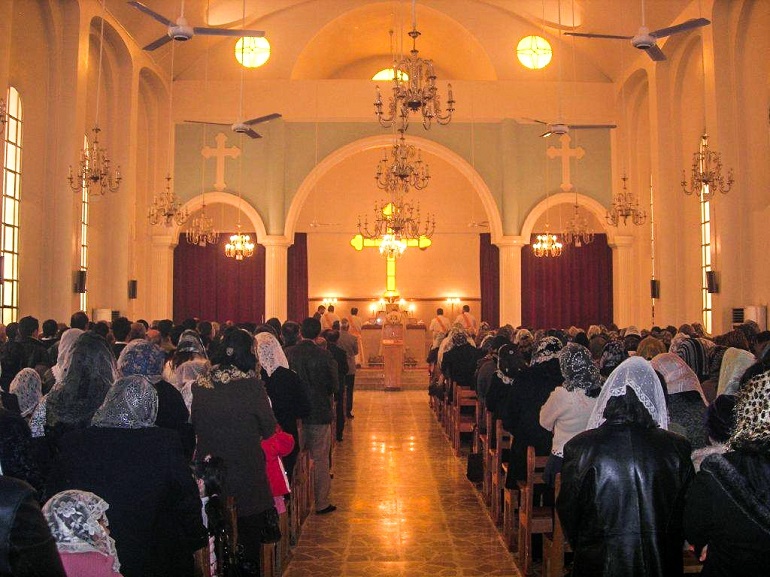
The Islamic State, following its defeat in Syria, has left behind hollowed-out Christian villages, reports the New York Times.
Assyrian Christians, an indigenous Middle Eastern minority, once formed thriving farming communities along the Khabur River in Syria’s northeast. But when IS attacked the area in 2015, the militants demolished churches and kidnapped more than 200 people.
IS sent 17 Assyrians back to their bishop in the city of Hasakah with a ransom demand: pay $50,000 per person, or be killed.
Many Assyrians already living in the diaspora helped raise the funds to pay the ransom for their release.
“The church has never revealed exactly how much it paid the Islamic State, but most assume it was more than a million dollars,” the NYT reports.
Most of the captives were released and fled the country with their families, leaving behind ghost towns where only a few residents still live. One girl was married off to a high-ranking IS official and the church was told she would never be released.
The area was retaken from IS by the Syrian Army and Kurdish YPG militias in October 2016. (The YPG has been accused of carrying out acts of violence and intimidation against those who survived IS occupation.)
Of the 10,000 Assyrian Christians who once lived in the more than 30 villages in the area, with over 24 churches, today only around 900 people are left, with only one church that holds regular services, Shlimon Barcham, a local official with the Assyrian Church of the East, told the NYT.
Back in November 2016, a senior priest in the Assyrian Church of the East told CNN that IS’s military defeat would not be enough to encourage displaced Christians back to the cities, towns and villages from which the jihadists chased them.
In the village of Tel Shamiran, there are reportedly only two residents left: a mother and her son. “We are staying, but for how long?” the son told the NYT. “If we want to get married, there are no girls left.”